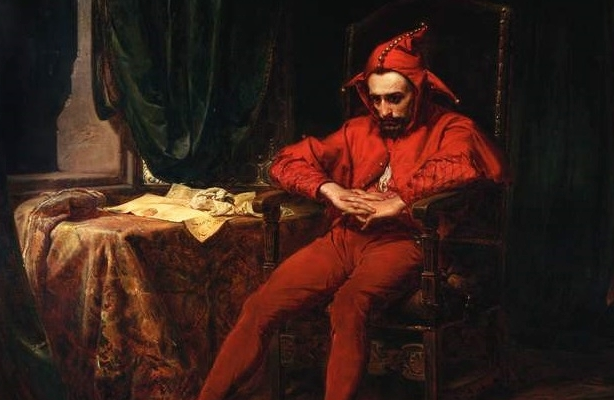by Fr. Patrick Henry Reardon
The account of Esther commences with an emperor and his empire. This emperor’s original-Persian-name was Xsayarsa. The Babylonians called him Achshiyarshu, which gave rise to the Hebrew version in the Massoretic text, Akhashverosh. Jerome, in his Latin translation from Hebrew, transliterated this to Ahasuerus, the name maintained in most English translations of Holy Scripture.
In the LXX this emperor is known as Artaxerxes. From the Book of Esther it is not clear whether this is Artaxerxes I (465-424) or Artaxerxes II (404-359). The question of his identity does not matter in the slightest to our understanding of the book. For what the author of the Book of Esther has to say, it could be either man . . . or neither.
Ahasuerus is, and remains, the utterly dominant figure throughout the Book of Esther. Because he is the most predictable, he is also the least interesting. From the opening verses of the book we learn several things about him.
First, Ahasuerus assumes the place of God. While it has long been noted that God (or prayer or anything religious) is not so much as mentioned in this book, it has only more recently become clear that Ahasuerus serves as God’s “replacement.” He is a political god, providing the sort of idolatry, Tertullian observed, that is most dangerous. Ahasuerus is portrayed as all powerful; his personal will is the source of all law, and everyone in the story is dependent on his favor.
Ahasuerus rules over all the earth-at least over all the earth considered in this book;
“this was the Ahasuerus,” we are told, “who reigned over one hundred and twenty-seven provinces, from India to Ethiopia.”
These two regions lie directly outside the extreme southern points of the Fertile Crescent.
If it seems that the biblical author is making fun of this emperor, let me suggest that the impression is accurate. Artaxerxes is portrayed as a consummate buffoon.
When things go badly in the story, the cause can normally be traced to some royal decision; he is forever promulgating insane decrees. When things go well, the emperor is never the cause of it. Throughout the book, the all-powerful king fails to make a single wise decision. Later in this chapter, for instance, he will forbid Queen Vashti to come into court, as a punishment for her failure to come into court!
This book is both a comedy and a tragedy, both a farce and a melodrama. The author seems to have his tongue in his cheek most of the time. It is a book to be enjoyed. Only after the reader has appreciated the humor should he start to look at its themes more seriously.
The emperor begins the action by hosting two large banquets. Let us note in passing that this format of two banquets will find its parallel, near the end of the book, in two suppers hosted by Esther herself.
The first banquet is for all the
“officials and servants-the powers of Persia and Media, the nobles, and the princes of the provinces”
of the large realm. The purpose of this feast was for the emperor to show off
“the riches of his glorious kingdom and the splendor of his excellent majesty.”
As it turned out, these riches were so extensive that it required 180 days for these political officials to see them all. Evidently the workings of the empire were sufficiently stable that all the regions were able to dispense with local government for six months! The reader begins to suspect that there is something farcical about this story. As one reads this book he will observe other evidence to support the suspicion.
The second banquet is, in its further details, even more impressive. We observe, for instance, that it is held for seven days and in a garden. The parallel with the Creation account is striking. Both stories involve seven days and a garden.
Certain features of this garden deserve further comment. We observe, for instance, that it was adorned with
“white and blue linen hangings fastened with cords of fine linen and purple on silver rods and marble pillars.”
These details, which put the reader in mind of the furnishings of the Lord’s Tabernacle in Exodus 26, also convey am impression of satire; the king’s garden becomes a parody of God’s Sanctuary. The goblets used in this garden party are made of gold, like those of the Temple.

